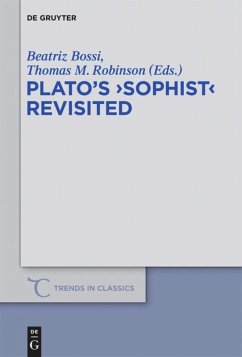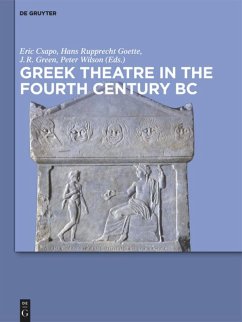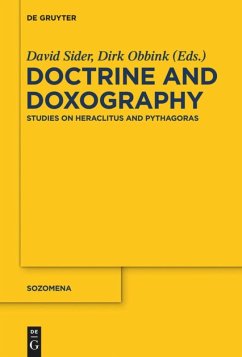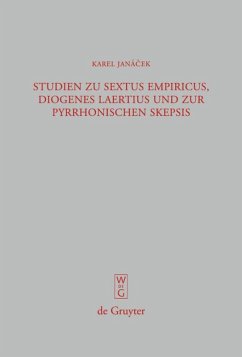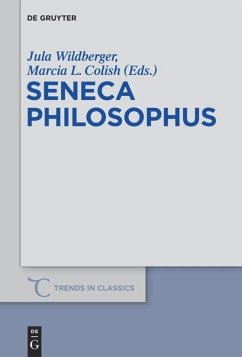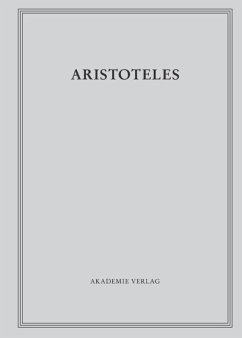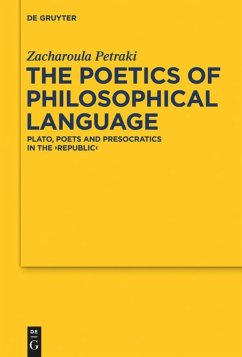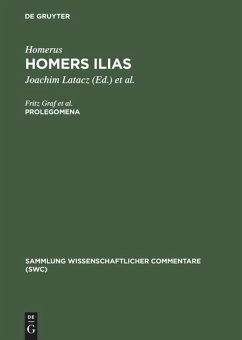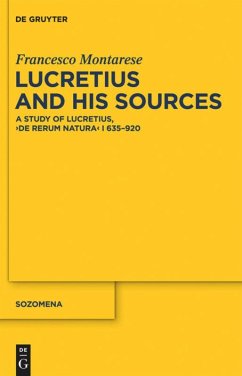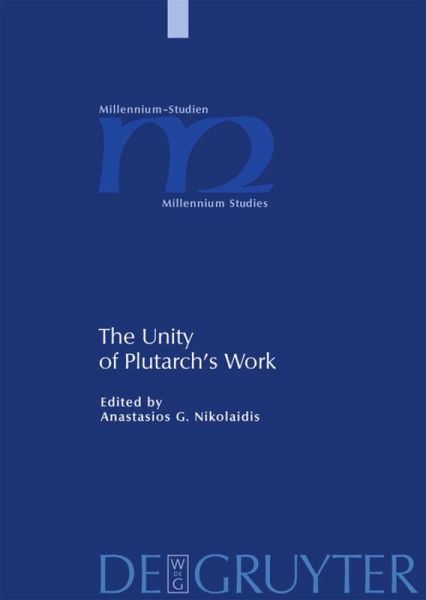
The Unity of Plutarch's Work
'Moralia' Themes in the 'Lives', Features of the 'Lives' in the 'Moralia'
Herausgegeben: Nikolaidis, Anastasios
Versandkostenfrei!
Versandfertig in 6-10 Tagen
330,00 €
inkl. MwSt.

PAYBACK Punkte
0 °P sammeln!
This volume of collected essays explores the premise that Plutarchâ??s work, notwithstanding its amazing thematic multifariousness, constantly pivots on certain ideological pillars which secure its unity and coherence. So, unlike other similar books which, more or less, concentrate on either the Lives or the Moralia or on some particular aspect(s) of Plutarchâ??s Å?uvre, the articles of the present volume observe Plutarch at work in both Lives and Moralia, thus bringing forward and illustrating the inner unity of his varied literary production.
The subject-matter of the volume is uncommonly wide-ranging and the studies collected here inquire into many important issues of Plutarchean scholarship: the conditions under which Plutarchâ??s writings were separated into two distinct corpora, his methods of work and the various authorial techniques employed, the interplay between Lives and Moralia, Plutarch and politics, Plutarch and philosophy, literary aspects of Plutarchâ??s Å?uvre, Plutarch on women, Plutarch in his epistemological and socio-historical context. In sum, this book brings Plutarchean scholarship to date by revisiting and discussing older and recent problematization concerning Plutarch, in an attempt to further illuminate his personality and work.
The subject-matter of the volume is uncommonly wide-ranging and the studies collected here inquire into many important issues of Plutarchean scholarship: the conditions under which Plutarchâ??s writings were separated into two distinct corpora, his methods of work and the various authorial techniques employed, the interplay between Lives and Moralia, Plutarch and politics, Plutarch and philosophy, literary aspects of Plutarchâ??s Å?uvre, Plutarch on women, Plutarch in his epistemological and socio-historical context. In sum, this book brings Plutarchean scholarship to date by revisiting and discussing older and recent problematization concerning Plutarch, in an attempt to further illuminate his personality and work.





